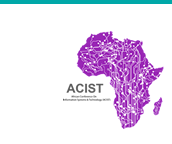Location
Malawi University of Science & Technology, Malawi
Start Date
26-8-2022 3:15 PM
End Date
26-8-2022 3:40 PM
Description
This paper sought to identify and compare disciplinary emphases in data science curricula across South Africa’s 26 public universities using a website scoping review method. The key findings reveal that only 12 of the 26 universities offer data science programmes that are publicly accessible on their websites. Of those 12, only 5 offer data science at the undergraduate level, and these undergraduate programmes are objectified (entirely leaning) to the science, technology, engineering, and mathematics (STEM) disciplines. Only seven of the universities offer a few non-STEM subjects with only one offering more non-STEM subjects compared to STEM subjects. The implications are that curricula of data science, which is multidisciplinary in nature, are more likely to inherit the STEM curricula challenges. The resultant impact will therefore likely extend to skills, future careers, and employment, in view of the growing demand for data scientists amid the unemployment challenges. It is recommended that intentional efforts must be made to necessarily ideologise non-STEM disciplines into data science curricula in South Africa, that is, to deeply embed societal contexts into data science curricula.
Previous Versions
Included in
Multidisciplinarity in Data Science Curricula
Malawi University of Science & Technology, Malawi
This paper sought to identify and compare disciplinary emphases in data science curricula across South Africa’s 26 public universities using a website scoping review method. The key findings reveal that only 12 of the 26 universities offer data science programmes that are publicly accessible on their websites. Of those 12, only 5 offer data science at the undergraduate level, and these undergraduate programmes are objectified (entirely leaning) to the science, technology, engineering, and mathematics (STEM) disciplines. Only seven of the universities offer a few non-STEM subjects with only one offering more non-STEM subjects compared to STEM subjects. The implications are that curricula of data science, which is multidisciplinary in nature, are more likely to inherit the STEM curricula challenges. The resultant impact will therefore likely extend to skills, future careers, and employment, in view of the growing demand for data scientists amid the unemployment challenges. It is recommended that intentional efforts must be made to necessarily ideologise non-STEM disciplines into data science curricula in South Africa, that is, to deeply embed societal contexts into data science curricula.



